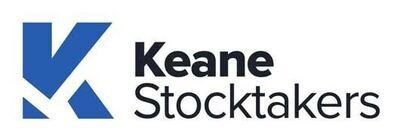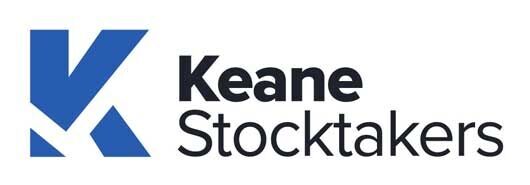
posted 4th May 2025

The fluorescent lights hum overhead as another late evening inventory count stretches into the night. Somewhere between the endless spreadsheets and the fourth cup of coffee, a store manager questions their career choices. This scene repeats itself in countless retail locations worldwide, yet seldom enters discussions about workplace satisfaction and managerial wellbeing. The quiet struggle of retail management balancing operational demands, staff dynamics, and personal sanity remains largely unexamined despite its impact on both business outcomes and individual fulfillment.
The Invisible Weight of the Keys
Every morning, they arrive first. Every night, they leave last. The symbolic weight of the store keys represents more than access to the building it embodies complete responsibility for everything that happens within those walls. This responsibility extends beyond merchandise and money to include the human ecosystem of employees, vendors, and customers navigating the space throughout operating hours.
The psychological burden of constant accountability rarely receives acknowledgment, yet fundamentally shapes managerial experience. When feedback occurs, it typically highlights shortcomings rather than celebrating successes, creating an evaluation environment where perfect execution represents the baseline expectation rather than exceptional performance. This imbalanced feedback loop naturally erodes confidence and enthusiasm over time.
Managers who maintain sustainable satisfaction levels typically develop intentional psychological boundaries that distinguish between aspects they directly control and elements they can merely influence. This critical distinction prevents inappropriate self-blame for systemic issues while maintaining appropriate accountability for genuine responsibilities. The healthiest managers recognize when they've done everything reasonably possible within their sphere of influence, preventing the endless self-criticism that leads to burnout.
Relational Ecosystem Management
Store managers don't merely oversee transactions they cultivate complex social environments where diverse personalities interact under constantly changing conditions. They simultaneously represent company interests to employees and employee concerns to upper management, creating inherent role tension that requires sophisticated diplomatic skills rarely acknowledged in formal job descriptions.
This relational complexity multiplies during difficult conversations, whether addressing performance issues with staff, managing customer complaints, or negotiating with vendors during supply chain disruptions. The emotional labor involved in these interactions managing others' emotions while regulating one's own responses represents invisible work that consumes substantial energy without formal recognition.
Successful managers develop communication frameworks that balance compassion with clarity, addressing issues directly while preserving dignity for all parties. This delicate balance requires tremendous interpersonal intelligence, yet seldom appears in formal training programs that emphasize operational procedures rather than human dynamics. The satisfaction gap often emerges from this disconnect between official responsibilities and actual success requirements.
Time Architecture vs. Time Management
The conventional wisdom suggests better time management as the solution for overwhelmed managers. This approach fundamentally misunderstands the nature of retail management, where interruptions and emergencies don't represent exceptions but core components of the role itself. The manager who attempts to execute a perfectly structured day invariably experiences frustration when reality intervenes, as it inevitably will.
More sustainable approaches involve time architecture designing systems that function despite interruptions rather than eliminating interruptions entirely. This perspective shift accepts the inherently unpredictable nature of retail environments while creating frameworks that maintain progress on essential functions regardless of daily disruptions. Practical implementations include designated "emergency handlers" during focused work periods, communication protocols that filter urgent from important matters, and administrative systems requiring minimal continuous attention.
The satisfaction difference emerges when managers measure success by appropriate response to actual conditions rather than adherence to ideal schedules. This mindset shift transforms unexpected situations from frustrating disruptions into expected components of the role, dramatically reducing the psychological friction that accompanies perpetual plan adjustments.
Metrics Recalibration
Few factors impact managerial satisfaction more directly than performance evaluation metrics. When measurements focus exclusively on outcomes without considering process quality or contextual challenges, they create perpetual pressure without providing developmental guidance. This dynamic produces defensive management styles focused on numbers rather than sustainable operational excellence.
Revolutionary approaches to metrics integrate qualitative assessments alongside quantitative measurements, recognizing that how results occur matters as much as their numerical outcomes. These balanced evaluation frameworks consider customer experience quality, staff development progress, and operational sustainability alongside traditional sales and efficiency metrics. This holistic approach acknowledges the complexity of retail management rather than reducing it to simplistic numerical targets.
The satisfaction impact emerges as manager’s shift from defensive performance to genuine operational improvement, focusing energy on sustainable excellence rather than temporary metric manipulation. This transition creates virtuous cycles where authentic improvement drives better results, which in turn reinforce constructive management approaches rather than desperate short-term measures.
Upstream-Downstream Awareness
Retail managers occupy crucial middle positions within organizational hierarchies, making them uniquely vulnerable to pressure from multiple directions. Decisions made at corporate levels create implementation mandates that may conflict with local realities, while frontline challenges demand immediate solutions that may contradict official procedures. Navigating these contradictory demands requires sophisticated organizational intelligence rarely acknowledged in formal position descriptions.
Managers who develop explicit strategies for navigating these cross-pressures maintain higher satisfaction levels than those who experience them as simple contradictions. Effective approaches include developing communication channels that provide implementation context to team members, creating feedback loops that accurately represent frontline realities to upper management, and building decision frameworks that appropriately balance corporate directives with local conditions.
The satisfaction differential emerges as manager’s transition from feeling caught between competing demands to seeing themselves as crucial translators between organizational levels. This perspective shift transforms an inherently difficult position into a uniquely valuable role that provides meaningful organizational impact unachievable from other positions.
Resource Allocation Intelligence
The stereotypical image of the micromanaging retail supervisor frantically involved in every operational detail represents the antithesis of sustainable satisfaction. Truly effective managers develop sophisticated resource allocation intelligence that appropriately distributes responsibilities across available personnel, technology, and external partners. This strategic distribution creates sustainable operations without requiring perpetual heroic efforts from management.
This intelligence extends beyond simple delegation to include thoughtful integration of technological solutions, strategic vendor partnerships, and cross-training programs that build organizational resilience. The sophisticated manager recognizes when investing in employee development ultimately creates more capacity than personal task assumption, even when the immediate time investment seems prohibitive.
The satisfaction difference emerges as manager’s transition from indispensable operational components to strategic system architects. This evolution creates space for appropriate personal boundaries while paradoxically increasing organizational impact through multiplied effectiveness. The resulting freedom from constant operational emergencies allows for strategic thinking that further enhances system performance.
Recovery Rhythms
The natural energy pattern of retail management involves intense periods of heightened demand—holiday seasons, special promotions, inventory periods—interspersed with relatively standard operational cycles. Managers who approach these fluctuations without intentional recovery protocols inevitably experience accumulating fatigue that progressively diminishes both performance and satisfaction.
Sustainable approaches involve explicit recovery rhythms that balance intense output with proportional restoration periods. These patterns include microcycles within workdays (intense focus periods followed by brief recovery intervals), weekly rhythms that incorporate genuine disconnection periods, and seasonal cycles that acknowledge the need for substantive recovery following predictably demanding periods like holiday seasons.
The satisfaction impact becomes visible as managers transition from perpetual depletion to sustainable energy management, allowing continued enthusiasm despite the inherent demands of retail management. This pattern interrupts the common burnout cycle where each challenging period diminishes capacity for subsequent demands, eventually resulting in complete exhaustion and disengagement.
Strengths Deployment
Traditional management development focuses heavily on deficiency correction—identifying weaknesses and implementing improvement plans that address these limitations. While seemingly logical, this approach creates perpetual consciousness of shortcomings without leveraging natural talents that could dramatically enhance both performance and satisfaction.
Revolutionary approaches instead emphasize strengths deployment identifying natural capacities and structuring roles to maximize these inherent advantages. This perspective shift creates opportunities for excellence through alignment rather than adequacy through remediation. Practical implementation includes deliberate team composition that complements managerial strengths, task allocation that leverages natural capabilities, and strategic partnership development that supplements areas outside personal strengths.
The satisfaction differential emerges as managers’ experience the energizing effect of working from strengths rather than the depleting impact of constantly addressing weaknesses. This energy advantage compounds over time, creating sustainable enthusiasm that conventional deficiency-focused approaches inevitably erode through their perpetual emphasis on inadequacy.
Identity Expansion
The retail manager who derives identity exclusively from professional performance inevitably experiences satisfaction vulnerability during inevitable operational challenges. Leveraging stocktaking companies can alleviate some of this pressure by providing objective inventory data. Every difficulty becomes not merely a situational issue but a personal identity threat, creating disproportionate emotional reactions that compound practical problems with psychological distress.
Sustainable approaches involve intentional identity expansion that incorporates professional contribution alongside other meaningful life dimensions. This balanced self-concept allows appropriate commitment to managerial excellence without making personal worth contingent on perfect operational outcomes. The resulting psychological resilience enables maintained perspective during challenging periods rather than catastrophic emotional responses.
The satisfaction impact becomes evident as managers maintain stable self-evaluation despite fluctuating circumstances, preventing the emotional volatility that often characterizes retail management positions. This stability creates capacity for objective problem-solving rather than reactive emotional responses, improving both professional outcomes and personal wellbeing.
In The Long Run
The secret to happier store managers lies not in simplistic solutions or motivational gimmicks but in fundamental reconceptualization of the managerial role itself. When organizations recognize the sophisticated skills required for effective retail management—psychological boundary maintenance, relational ecosystem cultivation, strategic resource allocation, and recovery rhythm development they create contexts where managers can thrive rather than merely survive.
This recognition translates into practical systems that support sustainable satisfaction: balanced evaluation frameworks, appropriate autonomy provisions, strategic development investments, and reasonable workload expectations. These structural elements create environments where managerial talent can flourish rather than being consumed by unrealistic demands or undermined by contradictory pressures.
For individual managers, the path toward greater satisfaction involves intentional practice of the principles outlined above: distinguishing between responsibility and control, developing sophisticated communication frameworks, implementing strategic time architecture, practicing deliberate recovery rhythms, and expanding identity beyond professional performance. These practices transform retail management from depleting obligation to sustainable career path with genuine satisfaction potential.
The retail environment will always present unique challenges through its unpredictable nature, diverse personnel requirements, and competitive pressures. However, these inherent challenges need not preclude managerial satisfaction when approached with appropriate frameworks and sustainable practices. The secret lies not in eliminating difficulty but in developing sophisticated responses that transform challenges into opportunities for meaningful contribution and professional growth.



